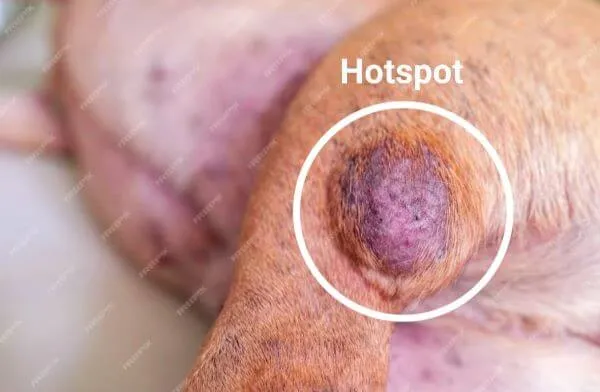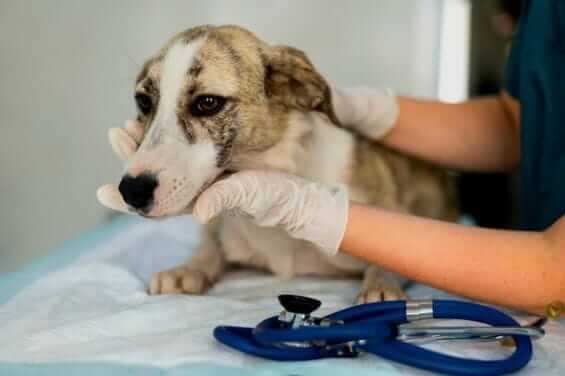You must have seen your dog coughing many times. Sometimes this coughing becomes severe and you start to wonder what is wrong with your dog. Coughing in dogs is a common phenomenon. It is caused by many factors. Some can be normal but some can be extremely dangerous. It is crucial for all pet owners to understand the reasons behind their dog’s mysterious coughing and recognize its symptoms so that they can explore appropriate treatment options for the underlying cause. This detailed article will provide you with every detail of reasons for coughing in dogs and its treatment.
Why Does A Dog Cough?
Dogs can cough due to respiratory infections like kennel cough, bronchitis, or pneumonia. Allergies to pollen, dust, or certain foods can also cause coughing in dogs. Heartworm disease can cause coughing as well. Additionally, foreign objects that get stuck in the throat can cause coughing.
What Are The Types Of Coughing In Dogs?
There are various types of dog coughing. Each cough indicates different underlying issues:
1. Dry or Hacking Cough:
Dry cough mostly occurs due to kennel cough which is a transferable respiratory infection.
2. Wet or Productive Cough:
Wet cough is seen mostly in cases of pneumonia or congestive heart failure, in which fluid accumulates in the lungs of dogs.
3. Reverse Sneezing:
This cough sounds like a sudden and quick inhalation. This is mostly harmless and occurs due to sudden excitement or irritation.
4. Gagging or Choking Cough:
This cough indicates that a foreign thing is stuck in the throat of a dog.
5. Honking Cough:
This cough is breed-specific, especially in small breeds. This indicates tracheal collapse.
Veterinarians identify the type of cough and any associated symptoms in dogs to diagnose the reason behind the cough and recommend appropriate treatment care.

What Are The Causes Of Coughing In Dogs?
1. Kennel Cough:
Kennel cough or Infectious Tracheobronchitis is a transmittable respiratory infection. This is a mild problem of the trachea (airways) but if it spreads to the lungs, it causes severe problems. This is caused by many viruses and bacteria. These viruses transmit from one dog to another in dog gatherings. Its symptoms include
- Dry or hacking cough
- Sneezing
- Nasal discharge
- Discomfort
Treatment of cough due to Tracheobronchitis:
While it is a mild problem, it mostly resolves on its own. When it becomes extreme, antibiotics are generally prescribed.
2. Canine Influenza:
This is a Viral infection that affects the complete respiratory system of the dog. Dogs mostly get this disease during winter. Dogs with influenza have symptoms like
- Coughing
- Sneezing
- Nasal discharge
- Fever
- Lethargy
Treatment of cough due to Influenza:
Its treatments include Supportive care, rest, and antiviral medicines to kill the generative of infection.
3. Heartworm Disease:
Heartworm disease is a Parasitic infection that is transmitted by mosquito bites into the blood of dogs during their feeding process. This disease affects the heart and also causes severe problems in the lungs. Its symptoms include
- Continuous wet cough
- Weakness
- Weight loss
- Difficulty in breathing
Treatments for cough due to heartworm disease:
Prevention is a major key. Keep your homes mosquitoes free by using insect repellents. Avoid green places or woods during rainy seasons. Its treatment includes medicines to kill heartworms.
4. Allergies:
As we all know dogs love to sniff everything and they get pollen, dust, mold, or certain foods in their airways and get many allergies. If a dog is coughing due to allergies he shows symptoms like
- Coughing
- Sneezing
- Frequent Panting
- Itching
- Gastrointestinal issues such as bloating
Treatment of dog cough due to allergens:
Train your dog to stay away from dirt or rotten food that are present outside the home. Identify what causes allergy to your dog and avoid all those things. Besides these things, if your dog gets a cough due to allergens, Antihistamines or other medicines are prescribed.
5. Pneumonia:
Severe inflammation of the lungs is called pneumonia. It is mostly caused by bacteria Streptococcus pneumonae. It causes
- Wet cough
- Difficulty breathing
- Fever
- Lethargy
- Deficiency of oxygen in blood
- Skin discoloration
Treatment of cough due to pneumonia:
Antibiotics are prescribed to kill all the bacteria. Other medicines are used to open the clogged airways and improve breathing.
6. Tracheal Collapse:
Tracheal collapse is a deadly disease that causes the weakening of tracheal cartilage. The trachea weakens and collapses at any time causing blockage in breathing and sudden coughing or death. This disease is common in small breeds. Its symptoms include an Honking cough, especially during excitement or exercise.
Treatment of cough due to Tracheal Collapse:
Vets mostly recommend managing the weight of the dogs to prevent collapse. Certain medicines are used and in extreme cases, sudden surgeries are required.
7. Choking:
Sometimes dogs Ingest some foreign objects that get stuck in their throats and cause difficulty in breathing. Dogs cough to clear their throats. Other symptoms of choking are
- Gagging
- Coughing
- Difficulty in swallowing
Treatment of choking:
The foreign object is removed by the Heimlich maneuver. Sometimes endoscopy or surgery is required.
8. Chronic Bronchitis:
Long-term inflammation of the airways is called Bronchitis. This is a deadly disease that causes Persistent cough along with mucus production and sometimes blood.
Treatment of cough due to Bronchitis:
Corticosteroids and bronchodilators are the medicines that are provided to reduce the inflammation. Most vets advise keeping your dogs away from colds especially if they have any Influenza.
9. Heart Disease (Congestive Heart Failure):
Heart-related issues cause an accumulation of fluids in the lungs that leads to persistent coughing difficulty in breathing and even death.
Treatment of cough due to heart disease:
Vets mostly prescribe cardiac medicines to manage heart problems. Different diuretics are used to reduce fluid from the lungs and improve breathing.
It is crucial to consult with a veterinarian for proper diagnosis and accurate treatment depending on the major cause of coughing in your dog.
When I Should Go To Veterinarian For My Dog’s Coughing?
If your dog is coughing, monitor for other symptoms, behavioral changes, or the type of the cough. Note if the cough is continuous, getting worse, or if there are any other indicators of illness. If your dog is gagging, look if there is any foreign object stuck in their mouth or throat.
If your dog shows other symptoms such as blood through cough, or difficulty in breathing, take him to the veterinarian as soon as possible. Provide each detail about the cough, its duration, and any other observed symptoms to determine the underlying cause of the cough.
How can I take care of a dog who is coughing?
Isolate your dog if it has kennel cough or another transmittable illness to avoid contaminating other animals. Make sure the space is peaceful and pleasant for relaxing.
Make sure your dog always has access to clean water to stay hydrated, especially when coughing irritates the throat. Reduce their exposure to smoking, strong fragrances, and other environmental elements that can worsen their respiratory issues. Follow the veterinarian’s recommendations regarding any prescription drugs or therapies.
Conclusion:
Keep in mind that severe or continuous coughing needs medical attention. Consulting a veterinarian can assist provide accurate identification and suitable care for the particular disease of your dog.





